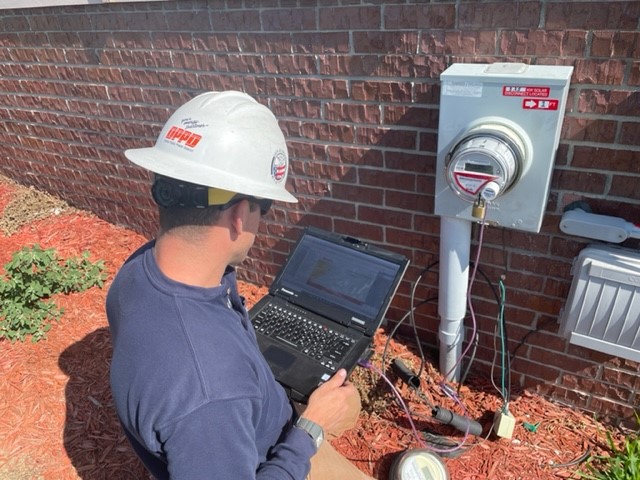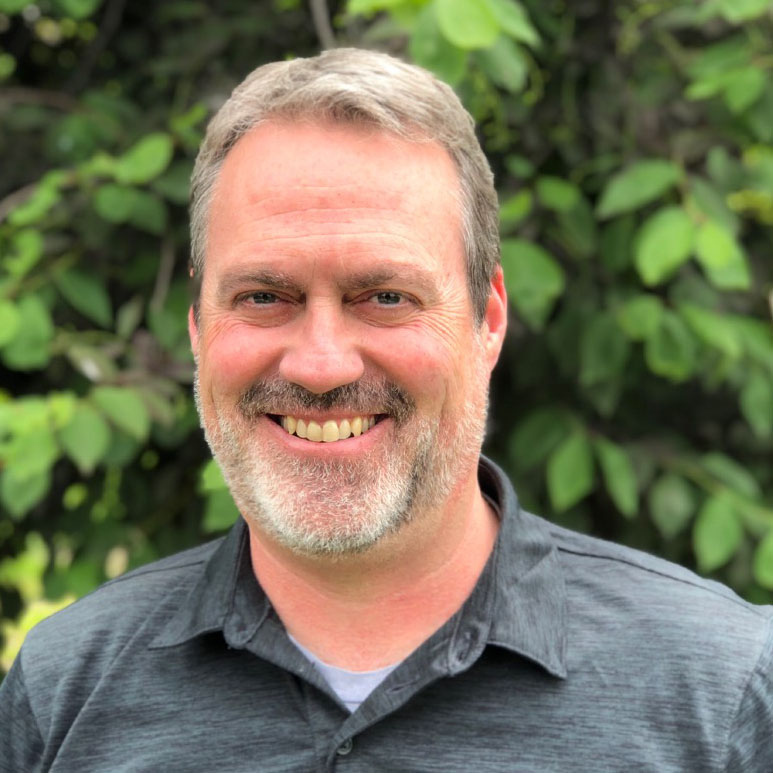
On a scorcher of a June day, Nate Thies, an OPPD meter technician, is trading out meters on a home near 30th and Lake streets in northeast Omaha. It is his second stop of the day doing such work and he has two more to go.

Thies is one of 10 OPPD meter techs who do solar testing and validation. That’s the process of going out to homes or businesses and switching out standard meters for OPPD net meters. Net meters like the one installed at the northeast Omaha home measure current flow in both directions, so OPPD can capture both the customer’s usage and the generation they push back to the utility.
Just a few years ago, a scene like this only played out once a month around the OPPD service territory. Now, it isn’t unheard of for techs do 20 such tests a week.
“We had to get more people involved and trained just to keep up with the number of tests scheduled,” said Justin Robinson, field supervisor of Metering Services. “We want to make sure everything is safely installed and that the system will do what our customers have been told it will do. We do all we can to protect our customer owners.”
OPPD must first review and approve all customer-owned generation systems before they interconnect with the electric grid. This is crucial so the utility can ensure the safety of its customers and employees.
Interest in solar power growing
The number of customer applications for solar made a huge jump once OPPD unveiled a new process for customers looking to own their own generation.

Last year, OPPD revamped and streamlined the process of applying for Customer-Owned Generation (COG). The program’s webpage includes a quick-start guide and pay-off calculator. The calculator helps customers determine how long it would be before their solar system pays for itself. The site also has information on how net metering works for billing.
What was once a confusing process is now much easier, said Kirk Estee, manager of Customer Alternative Energy Solutions at OPPD. Customers now have access to a wealth of information right at their fingertips.
And as the process improved, customer interest in solar power has spiked.
Number of solar applications (estimated):
2019: 24
2020: 59
2021: 600
2022: 1,000
Estee said a number of factors have played into the increase in applications.
“The price of solar systems has likely hit its bottom,” Estee said. “We are now starting to see the prices come up due to supply chain issues tariffs, and materials, so that downward progression is trending back upward.”
Also playing a part are a number of out-of-town companies that have been coming to the OPPD service territory and really working the market for new customers.
Helping customers
Estee said it is important for customers to educate themselves on solar power before purchasing a system. One of the first things customers should do is to check and make sure the seller is on OPPD’s list of participating trade allies. OPPD trains these trade allies, who are experienced professionals, on the application process. They have met a list of qualifications and agreed to standards of conduct.
It’s also important that customers get more than one bid, Estee said. Also, use OPPD’s solar calculator to help determine whether solar power is right for your home.

“Solar isn’t right for everyone. For many, the system won’t end up paying for itself,” Estee said. “But for most customers who choose to add solar, that isn’t the main reason they are doing so. The majority of these customers are doing it because they want to do more for the environment. It’s important for them to know they are helping power their homes with green energy.”
Back at the home off of Lake Street, Thies has configured the new meter and has tracked the kilowatt hours and confirmed the system is producing power. Little arrows that had been flashing to the right have reversed and are now flashing to the left, indicating the home is being powered by the east- and north-facing solar panels on the roof.
“It is doing what it is supposed to be doing,” Thies said after completing the testing. “It is definitely helping us produce more energy. When it is really hot like this, everyone is using their air conditioners. So when people are using their power instead of pulling off of our grid, that is helping out both entities.”

Jason Kuiper joined OPPD as a communications specialist in 2015. He is a former staff writer and reporter at the Omaha World-Herald, where he covered a wide range of topics but spent the majority of his career covering crime. He is a graduate of the University of Nebraska at Omaha and has also appeared in several true crime documentary shows. In his free time he enjoys cooking, spending time with his wife and three children, and reading crime novels.
View all posts by Jason Kuiper >







